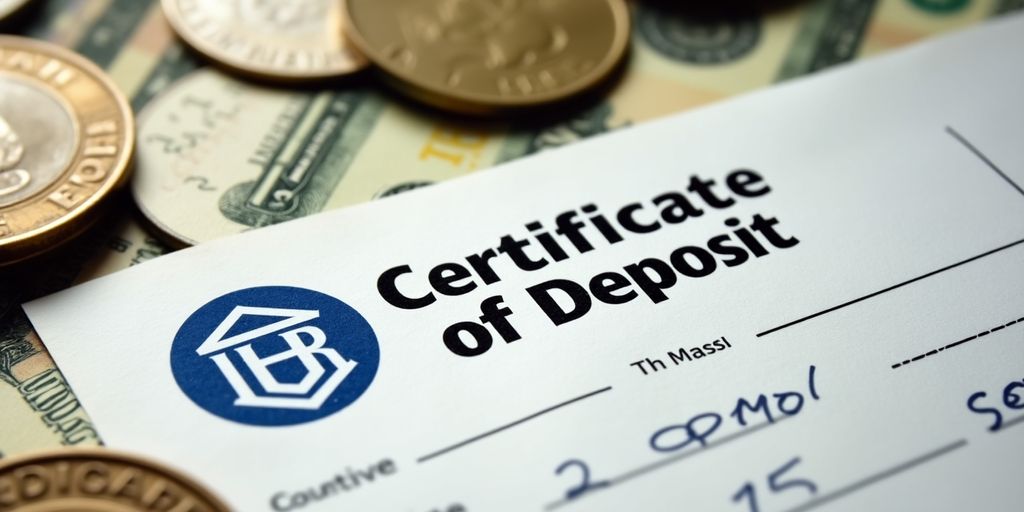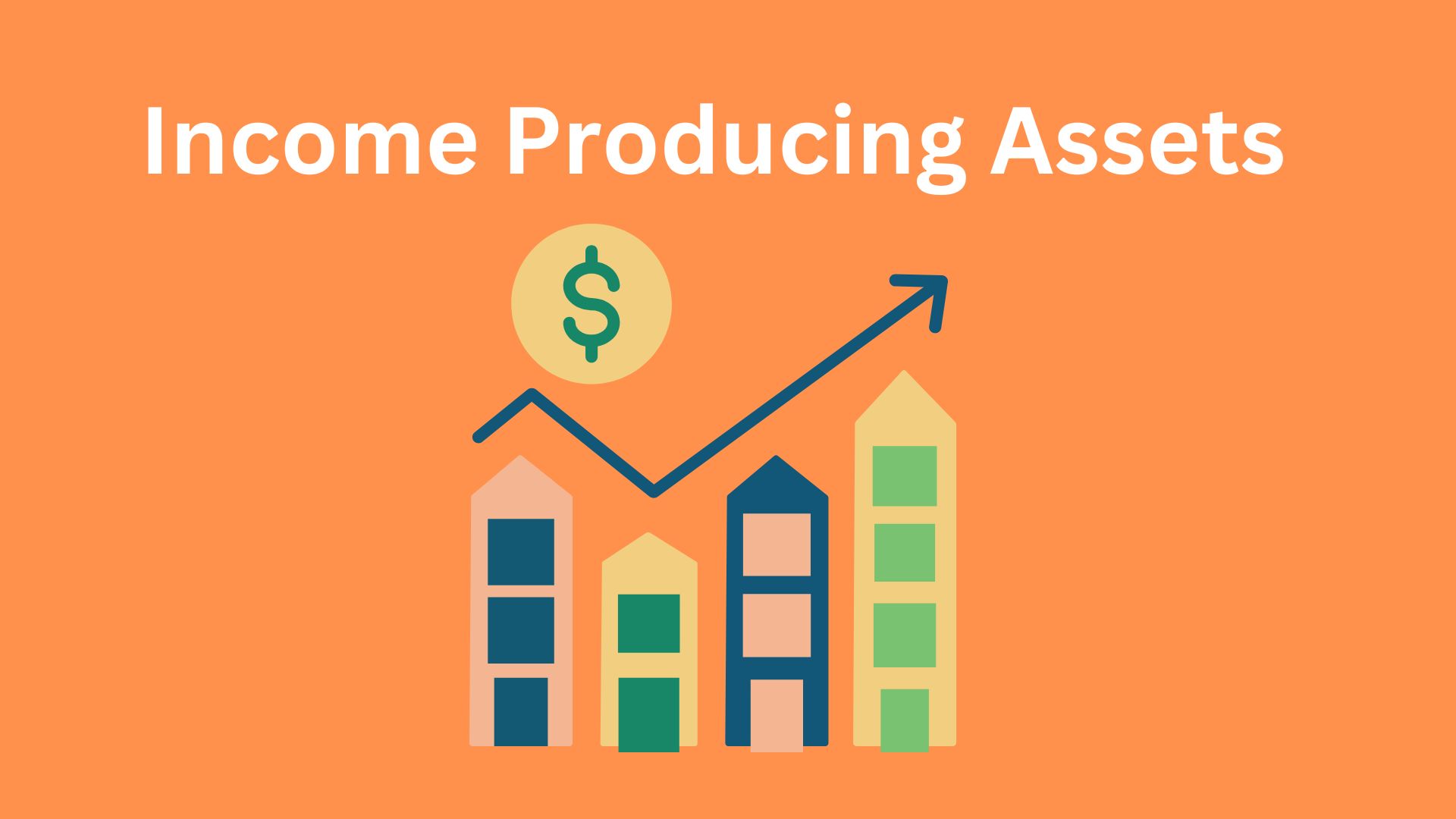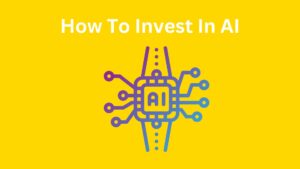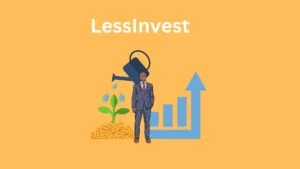In 2026, building wealth can be easier than you think, especially if you focus on income producing assets. These are investments that can generate money for you over time, helping you grow your savings without needing to work extra hours. This article will explore the top ten income producing assets that can help you get started on your journey to financial freedom.
Key Takeaways
- Income producing assets help you earn money over time.
- Investing in these assets can lead to financial growth and security.
- There are many types of income producing assets, from stocks to real estate.
- Starting small is okay; many assets require little initial investment.
- Educating yourself about these investments is key to making smart choices.
What Are Income Producing Assets
Income producing assets are investments designed to generate regular cash flow with minimal ongoing effort from the investor. These assets provide a steady stream of passive income through various mechanisms such as rental payments, dividend distributions, interest earnings, or profit-sharing arrangements.
In 2026, the concept of passive income has gained significant traction as investors seek more flexible and resilient ways to build wealth. The key advantage of income-producing assets is their ability to generate regular income while potentially appreciating in value over time. This dual benefit makes them an attractive option for investors looking to create multiple income streams and reduce financial risk.
When considering income-producing assets, it’s crucial to assess factors like initial investment requirements, potential returns, risk tolerance, and market conditions. Each asset class offers unique advantages and challenges, making diversification an essential strategy for long-term financial success.
1. Stocks
Stocks are a popular way to invest and grow your wealth. When you buy stocks, you own a small part of a company. This means you can benefit from the company’s success.
Key Benefits of Investing in Stocks:
- Potential for Growth: Stocks can increase in value over time, allowing you to make money.
- Liquidity: Stocks are easy to buy and sell, making them a flexible investment.
- Accessibility: You can start investing with a small amount of money, sometimes as low as $5.
Risks to Consider:
- Market Fluctuations: Stock prices can go up and down quickly, which can be stressful for investors.
- Long-Term Commitment: It’s often best to hold stocks for at least 10 years to ride out the ups and downs of the market.
Summary of Stock Investment:
| Feature | Details |
|---|---|
| Risk/Reward | Medium-to-high |
| Time Commitment | Long |
| Minimum Investment | $5 |
| Platform | Public |
Investing in stocks can be a great way to build wealth, but it requires patience and a willingness to handle some risk.
2. Bonds

Bonds are a type of investment where you lend money to a company or government, and in return, they promise to pay you back with interest. This makes bonds a safer choice compared to stocks.
What Are Bonds?
Bonds are essentially IOUs. When you buy a bond, you are giving a loan to the issuer, which could be a corporation or the government. They agree to pay you back the amount you invested, plus interest, at a later date known as the maturity date.
Types of Bonds
There are several types of bonds you can invest in:
- Government Bonds: These are issued by the government and are considered very safe.
- Corporate Bonds: These are issued by companies and usually offer higher interest rates but come with more risk.
- Municipal Bonds: These are issued by local governments and can offer tax benefits.
Pros and Cons of Bonds
Pros:
- Stable income through regular interest payments.
- Lower risk compared to stocks.
- Easy to buy and sell through brokers.
Cons:
- Generally lower returns than stocks.
- Interest rate risk: if rates go up, the value of existing bonds may go down.
Conclusion
Bonds can be a great way to earn steady income while keeping your investment relatively safe. They are especially useful for balancing out the risk in your investment portfolio.
3. Real Estate
Real estate is a powerful way to build wealth. It offers many options for earning money, making it a popular choice for investors. Here are some key points to consider:
Pros and Cons of Real Estate
Pros:
- Multiple ways to earn returns, such as rental income and property appreciation.
- Can provide a steady monthly cash flow.
- Real estate often keeps up with inflation, protecting your investment.
Cons:
- Requires a significant amount of money upfront, often 20-25% of the property price.
- Ongoing management and maintenance can be time-consuming.
Ways to Invest in Real Estate
- Direct Ownership: Buy a property and rent it out.
- Real Estate Investment Trusts (REITs): Invest in companies that own and manage real estate.
- Crowdfunding Platforms: Use platforms like Arrived or Fundrise to invest in real estate with lower amounts of money.
Important Considerations
Investing in real estate can be rewarding, but it also requires careful planning and management. Make sure to research and understand the market before diving in.
4. REITs
Real Estate Investment Trusts, or REITs, are a great way to invest in real estate without having to buy property yourself. They allow you to earn money from real estate while avoiding the hassle of managing it.
What Are REITs?
REITs are companies that own and manage income producing real estate. They collect rent from tenants and pay out at least 90% of their taxable income as dividends to their investors. This makes them a popular choice for those looking for steady income.
Types of REITs
There are different types of REITs you can invest in:
- Publicly Traded REITs: These are listed on stock exchanges and can be bought and sold like regular stocks.
- Private REITs: These are not traded on stock exchanges and are usually available only to accredited investors.
- Non-Traded Public REITs: These are registered with the SEC but do not trade on stock exchanges.
Benefits of Investing in REITs
- Diversification: Investing in REITs allows you to own a piece of many properties, reducing risk.
- Liquidity: Publicly traded REITs can be easily bought and sold.
- Income Generation: They provide regular dividend payments, making them attractive for income-focused investors.
Investing in REITs can be a smart choice for those who want to benefit from real estate without the responsibilities of being a landlord.
5. High-Yield Savings Accounts
High-yield savings accounts are a great way to earn more interest on your money compared to regular savings accounts. These accounts are perfect for people who want to keep their cash safe while still earning some interest.
Benefits of High Yield Savings Accounts
- Higher Interest Rates: You can earn interest rates that are much higher than traditional savings accounts.
- Safety: Most high-yield savings accounts are insured by the FDIC, which means your money is protected up to $250,000.
- Easy Access: You can quickly transfer your money to your main bank or withdraw it when you need it.
Things to Consider
- Inflation Risk: If the interest rate is lower than inflation, you might lose purchasing power over time.
- Minimum Balance Requirements: Some accounts may require you to keep a certain amount of money in them to earn the best rates.
- Online Banks: Many high-yield accounts are offered by online banks, which may not have physical branches.
High-yield savings accounts are a smart choice for anyone looking to grow their savings safely while still having access to their money.
6. Private Credit

Private credit is a type of investment that many people overlook. It allows you to earn money by lending to private companies that can’t get loans from banks. Here’s what you need to know:
Key Features of Private Credit
- Risk/Reward: Medium
- Time Commitment: Short
- Minimum Investment: $500
- Platform: Percent (only for accredited investors)
Why Consider Private Credit?
- Shorter Loan Durations: Most loans last about 9.7 months.
- Higher Returns: Historical average returns can be around 13.98% APY.
- Diversification: It offers a way to invest outside of public markets, reducing risk.
Pros and Cons of Private Credit
| Pros | Cons |
|---|---|
| Higher yields than traditional bonds | New deals can be slow to find |
| Offers diversification | Only available to accredited investors |
| Potential for stable returns |
To invest in private credit, you need to be an accredited investor. This means you must meet certain income or net worth requirements.
7. Peer-to-Peer Lending

Peer-to-peer lending, often called P2P lending, allows you to lend money directly to individuals without going through a bank. This can be a great way to earn interest on your money while helping others.
Key Features:
- Risk/Reward: Medium
- Time Commitment: Short-to-medium
- Minimum Investment: $25
- Platform: Prosper
P2P lending platforms like Prosper connect you with borrowers who might need funds for various reasons, such as weddings or home repairs. When you lend money, borrowers pay you back with interest over time. Here’s a quick overview of how it works:
- Choose a Borrower: You can select who you want to lend to based on their credit rating.
- Make a Loan: After choosing, you can lend as little as $25.
- Receive Payments: Borrowers will make monthly payments that include both the principal and interest.
Pros and Cons of Peer-to-Peer Lending
Pros:
- Passive Income: You can earn money without much effort once the loan is made.
- Diversification: You can spread your investment across multiple loans to reduce risk.
Cons:
- Risk of Default: If a borrower fails to repay, you could lose your investment.
- Economic Impact: In tough economic times, more borrowers may miss payments.
Investing in peer-to-peer lending can be rewarding, but it’s important to understand the risks involved. Always consider spreading your investments to minimize potential losses.
8. Dividend-Yielding Stocks
Dividend-yielding stocks are shares in companies that pay out a portion of their profits to shareholders regularly, usually every quarter. These stocks can provide a steady income stream, making them attractive for many investors.
Benefits of Dividend Stocks
- Regular Income: Investors receive cash payouts, which can be reinvested or used as income.
- Potential for Growth: Many dividend stocks are from established companies that may also see their stock prices increase over time.
- Lower Risk: Dividend stocks are often seen as safer investments compared to non-dividend stocks.
Popular Dividend Stock Funds
Here are some well-known funds that focus on dividend-yielding stocks:
| Fund Name | Type |
|---|---|
| Vanguard Dividend Appreciation Fund (VDAIX) | Mutual Fund |
| Vanguard High Dividend Yield Index Fund (VHDYX) | Mutual Fund |
| Vanguard Dividend Growth Fund (VDIGX) | Mutual Fund |
| T. Rowe Price Dividend Growth Fund (PRDGX) | Mutual Fund |
Risks to Consider
- Market Fluctuations: Even dividend stocks can lose value during market downturns.
- Company Performance: If a company faces financial trouble, it may cut or eliminate its dividend.
- Selection Risk: Not all dividend stocks are created equal; some may have high yields due to underlying issues.
Investing in dividend-yielding stocks can be a smart way to build wealth over time, but it’s important to choose wisely and diversify your investments.
9. Certificates of Deposit

Certificates of Deposit (CDs) are a safe way to grow your money. They offer higher interest rates than regular savings accounts. When you invest in a CD, you agree to keep your money in the bank for a set time, usually from a few months to several years. Here’s what you need to know:
How CDs Work
- You deposit money for a fixed term.
- The bank pays you interest on that money.
- You can’t take the money out until the term ends without a penalty.
Benefits of CDs
- Higher interest rates compared to regular savings accounts.
- FDIC insured up to $250,000, making them very low risk.
- Good for people who want to save for a specific goal and can wait to access their money.
Drawbacks of CDs
- Inflation risk: If inflation is higher than your interest rate, you could lose purchasing power.
- Limited access: Your money is tied up for the term length.
- Opportunity cost: If interest rates rise, you might miss out on better returns.
Investing in CDs can be a smart choice for those who prefer low-risk options and want to earn a steady return on their savings.
10. Money Market Funds
Money market funds offer low-risk options for generating passive income with minimal volatility. These investments provide stable, predictable returns, making them suitable for conservative investors or those seeking to preserve capital.
Money market funds invest in short-term, high-quality debt instruments, offering slightly higher returns than traditional savings accounts.
While these investments generally offer lower returns compared to riskier assets, they play a crucial role in creating a balanced and diversified investment portfolio.
Pros And Cons Of Money Market funds
Pros
- High liquidity with easy access to funds
- Low-risk investment option
- Typically provides higher interest rates than traditional savings accounts
- Offers stability and capital preservation
- Typically backed by high-quality, short-term securities
- Low minimum investment requirements
- Potential tax advantages for certain types of funds
- Instant diversification across multiple short-term securities
Cons
- Lower returns compared to stocks, bonds, and other investment vehicles
- Not FDIC-insured like bank savings accounts
- Potential for losing principal, though rare
- Vulnerable to inflation, which can erode purchasing power
- Yields fluctuate with current interest rate environments
- Management fees can reduce overall returns
- Less potential for significant long-term wealth accumulation
- May have restrictions on withdrawals or transactions
Key Considerations:
- Suitable for conservative investors or emergency fund storage
- Best used as part of a broader, diversified investment strategy
- Yields typically track short-term interest rates
- Different types include government, prime, and tax-exempt money market funds
- Performance depends on prevailing economic conditions and monetary policy
Recommended for investors seeking capital preservation and minimal risk with modest, stable returns.
11. Yourself
Investing in yourself is one of the best ways to grow your wealth. When you improve your skills and knowledge, you can increase your income significantly. Here are some key points to consider:
Benefits of Investing in Yourself
- Fast Return on Investment (ROI): Learning new skills can quickly lead to better job opportunities.
- Unique Skill Sets: Combining different skills can make you stand out in the job market.
- Free Resources: There are many free resources available, like YouTube and local libraries, to help you learn.
Challenges to Consider
- Time and Effort: Learning new things takes time and dedication.
- Financial Investment: Some courses or certifications may cost money.
- Consistency Required: You need to keep learning and practicing to see results.
Investing in your education is a powerful step towards financial success. The more you know, the more you can earn.
In summary, investing in yourself is a low-risk, high-reward strategy that can lead to greater financial security and wealth over time.
Final Thoughts on Income-Generating Assets
In conclusion, investing in income generating assets is a smart way to build your wealth in 2026. By choosing the right assets, you can create a steady flow of income that helps you reach your financial goals. Remember, it’s not just about making money; it’s about making your money work for you. Whether you decide to invest in stocks, real estate, or even in yourself, the key is to start now. Take your time to learn, explore your options, and find what fits your needs. With patience and smart choices, you can grow your wealth and secure a better financial future.
Frequently Asked Questions
What are some examples of income producing assets?
Examples include dividend-paying stocks, real estate, and high-interest savings accounts.
What does income generating assets mean?
These are investments that make money for you, like stocks, bonds, and rental properties.
Which asset is best for making money?
Good choices include stocks, real estate, and bonds. Don’t forget that investing in yourself is also important!
What is the cheapest asset to buy?
Low-cost stocks or fractional shares are some of the most affordable options to invest in.
Where should I invest $1,000 right now?
Consider investing in stocks that are rated highly by analysts or look into index funds.
How can I generate passive income?
You can earn passive income through rental properties, dividend stocks, and high-yield savings accounts.
Is real estate a good investment?
Yes, real estate can be a great way to earn income and build wealth over time.
What does it mean to invest in yourself?
Investing in yourself means learning new skills or gaining knowledge that can help you earn more money in the future.




